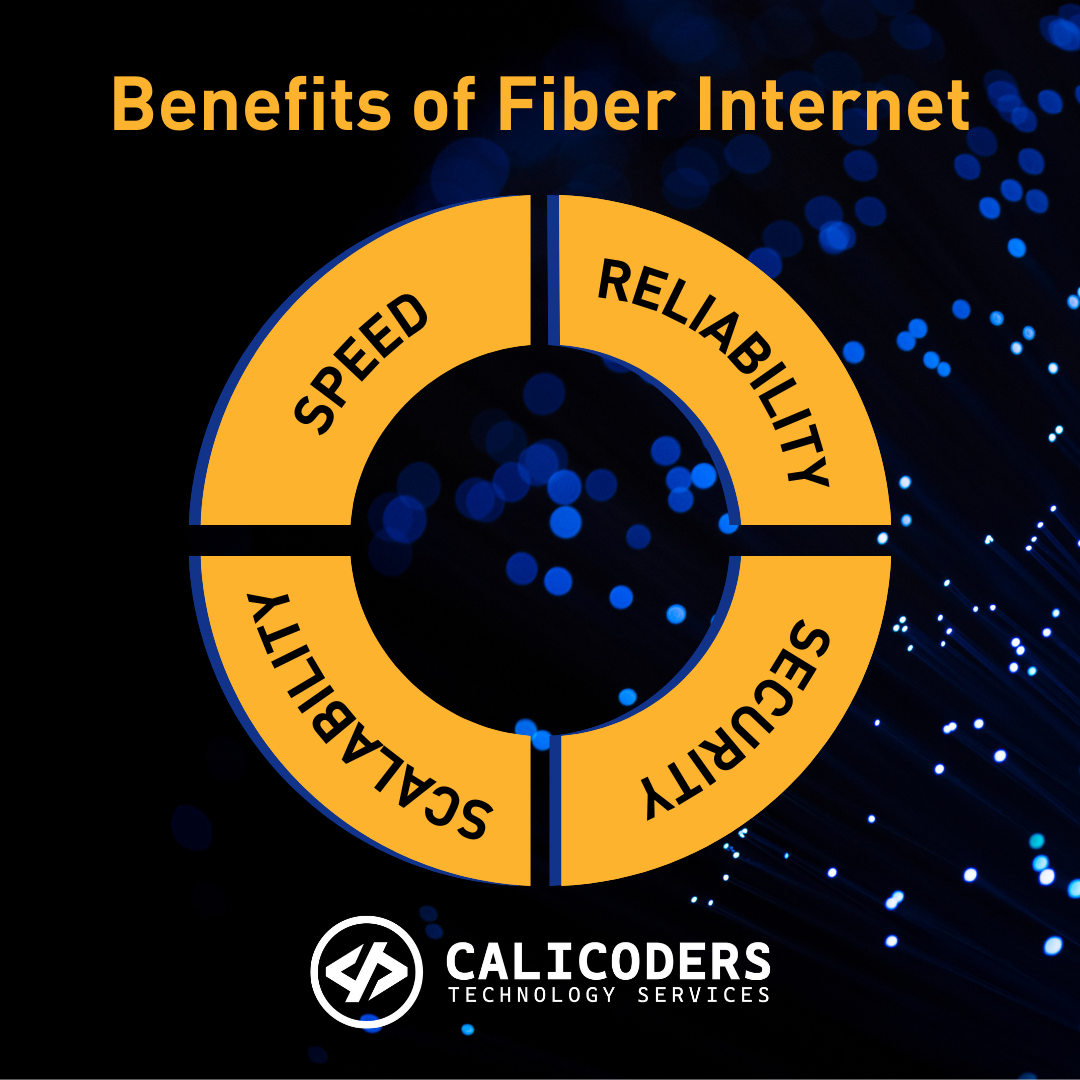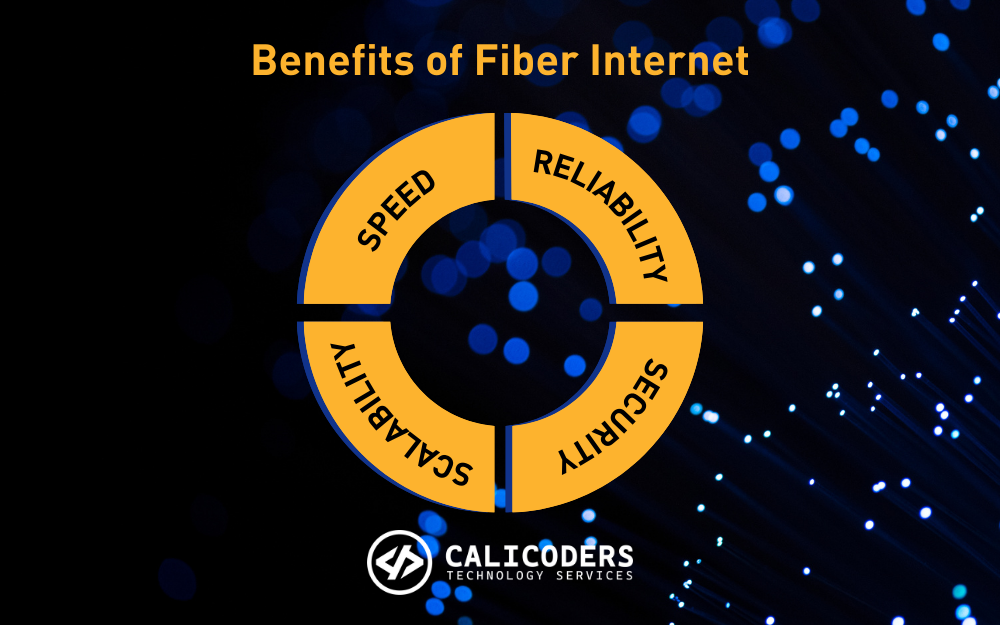
Fiber Internet for Business: Why It’s a Game Changer
In today’s fast-paced business world, reliable and fast internet is more than just a convenience—it’s a necessity. Whether you’re running a small startup or managing a large corporation, your business’s internet connection plays a crucial role in maintaining productivity, communication, and overall efficiency. That’s where fiber internet comes in.
In this blog, we’ll explore why fiber internet is a game changer for businesses, how it compares to traditional broadband options, and why making the switch could boost your company’s performance.
What is Fiber Internet?
Fiber-optic internet is a high-speed broadband connection that transmits data using light signals through glass or plastic fibers. Unlike traditional copper wiring (like DSL or cable internet), fiber-optic technology offers superior speed, reliability, and performance.
Why Fiber Internet Is Ideal for Business
- Unmatched Speed Fiber internet is the fastest internet option available, capable of speeds up to 1 Gbps (Gigabit per second) or even higher. This means that tasks like uploading large files, running multiple video conferences simultaneously, or backing up data to the cloud are completed almost instantaneously. No more waiting for slow downloads or interruptions during important video calls!
- Incredible Reliability Fiber-optic cables are less susceptible to weather interference, electromagnetic interference, or signal degradation over long distances, which is a common issue with traditional broadband. This makes fiber internet incredibly reliable, which is essential for businesses that cannot afford to experience downtime.
Why does this matter for your business? Any amount of internet downtime can result in productivity loss, customer dissatisfaction, and missed business opportunities. With fiber internet, you can count on consistent speeds and uptime, which means fewer disruptions and more seamless operations. - Symmetrical Upload and Download Speeds With fiber internet, you’ll enjoy symmetrical speeds, meaning your upload and download speeds are the same. Traditional broadband services (like DSL or cable) often provide much faster download speeds than upload speeds, which can be a problem if your business relies on cloud-based services, file sharing, or video conferencing.
What does this mean for your business? If your team collaborates remotely or relies on cloud-based applications, having symmetrical upload and download speeds ensures faster and more efficient file transfers and communications. - Scalability for Future Growth Fiber internet is scalable, which means as your business grows, your internet connection can grow with you. Unlike older copper-based internet connections, fiber offers bandwidth that can easily handle future demands, such as streaming high-definition content, using large cloud storage solutions, or supporting remote workforces with high data usage.
Why is this important? As your business expands and integrates more technology, you want an internet infrastructure that can support increased traffic and connectivity needs without slowing down. Fiber internet allows you to expand your capabilities without worrying about bandwidth limitations. - Increased Productivity Speed, reliability, and low latency (the delay before a transfer of data begins following an instruction) can all impact your team’s productivity. A fast internet connection means that employees don’t need to wait for slow downloads, uploads, or buffering when conducting business-critical tasks. This is especially important for businesses that rely on constant collaboration, cloud-based apps, or large-scale data transfers.
How does this affect your bottom line? Faster, more efficient operations mean your team spends more time being productive and less time troubleshooting internet issues. This improves overall employee satisfaction and can even impact your company’s profitability. - Enhanced Security Fiber-optic networks offer enhanced security features compared to traditional copper-based networks. Data is transmitted via light pulses, making it far more difficult to intercept or hack. Additionally, many fiber internet providers offer dedicated, encrypted connections that help keep sensitive company data safe.
Why does security matter? If your business handles sensitive customer data, financial information, or intellectual property, you need a secure internet connection that minimizes the risk of cyber threats and breaches. - Cost-Effective in the Long Run While fiber internet might have a higher initial installation cost compared to traditional broadband options, the long-term savings are significant. The increased speed and reliability reduce downtime, support remote work, and allow your team to do more with fewer tech disruptions. Plus, as fiber internet becomes more widely available, prices continue to drop, making it a more affordable option for businesses of all sizes.
How Does Fiber Internet Compare to Traditional Broadband?
| Feature | Fiber Internet | DSL or Cable Internet |
| Speed | Up to 1 Gbps or more | 10 Mbps to 100 Mbps |
| Reliability | Extremely reliable, minimal downtime | Prone to slowdowns during peak usage |
| Upload & Download Speeds | Symmetrical speeds | Asymmetrical (faster downloads, slower uploads) |
| Scalability | Highly scalable for future needs | Limited scalability |
| Security | More secure due to light-based transmission | More vulnerable to data breaches |
| Cost | Higher initial cost, but more cost-effective long-term | Generally cheaper initially, but can be prone to hidden fees |
How to Implement Fiber Internet for Your Business
- Assess Your Needs: Before making the switch to fiber, assess your current and future internet requirements. Consider the number of employees, the type of work you do, and how much data you use on a daily basis. This will help you determine the appropriate bandwidth and services for your company.
- Choose a Fiber Internet Provider: Not all providers offer fiber internet, so you’ll need to research which ISPs (internet service providers) offer fiber in your area. Look for a provider that offers the speed, reliability, and service level you require.
- Installation and Setup: Installing fiber internet may require some setup time, as it involves running fiber-optic cables to your business location. Make sure to plan for this and communicate with your provider about the installation timeline.
- Ongoing Maintenance and Support: Once installed, you’ll need to ensure regular maintenance and technical support. A reliable IT support team, like Calicoders, can help you monitor and manage your fiber connection, troubleshoot any issues, and ensure that your internet is always running smoothly.
Conclusion: Is Fiber Internet Right for Your Business?
If you want to improve productivity, enhance security, and future-proof your company’s internet infrastructure, fiber internet is the way to go. It offers unparalleled speed, reliability, and scalability, ensuring that your business can stay competitive in today’s digital world.
At Calicoders, we specialize in providing businesses with the support and technology they need to thrive. Whether you’re considering fiber internet or need help optimizing your current setup, our team is here to help guide you through the process. Reach out to us today to learn more about how fiber internet can revolutionize your business!
To get started, call our office at 909-654-6444 or click here to schedule a consultation.
